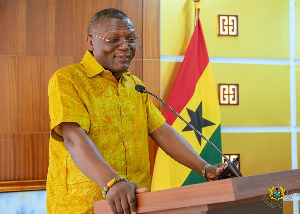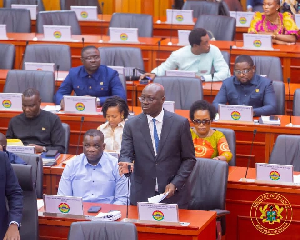The Presidential Committee charged with the review of the Education Reform in the country was not consulted by government before the recent Cabinet decision to make English language the medium of instruction at all levels.
Mr Kosi Kedem, Minority Spokesman on Education and member of the Committee, disclosed this when the Ghanaian Times contacted him on the issue. The interview was also necessitated by the concerns expressed by some stakeholders in education that the policy statement as decided by cabinet, could impact negatively on the teaching and learning of the school-going child. The old policy of 1971 outlined that at the lower primary level, pupils should be instructed in their local language.
Mr Kedem said that the Presidential Committee chaired by Professor Josephus Anamoah-Mensah Vice-Chancellor of the university of Winneba, had been sitting since February to work out modalities on the reform of Education and advise government on specific policies. ?I am, therefore, shocked and surprised that the government would come out without and any consultations on such a major policy statement,? he said.
When contacted, Prof Anamoah-Mensah confirmed that even though the committee was set up to look into the education systems in the country, they were not consulted before the government took the decision. But he conceded that the government was not obliged to consult them before such policy statements were made. ?Even though our committee is in place, the government machinery is still working,? he said.
The committee chairman said that the Committee had not adequately discussed issues like language, vocational and technical aspects of education since a lot needed to be done before a final consensus was made on them. He expressed the hope that by the end of the month, they would have reached a consensus on the various issues to be able to develop a National Education Reform Programme.
It is recalled that Cabinet on 17 May decided that English language should be used as the only medium of instruction at all levels of education in the country. It also directed that every Ghana Child should study one local language from Primary One up to the Senior Secondary School (SSS) level.
In reaction, various groups have expressed their reservations to the decision. The Centre for the Advocacy on Language and Culture (CALAC) of the University of Winneba said ?It was unfortunate that while the Education Review Committee was still holding for a to collate public views on the issue, cabinet could not wait for its report.?
Meanwhile, two literacy programmes operating in the northern Region, the School For Life (SFL) and the Ghana Institute of Language Literacy and Bible Translation (GILLBT) have said the new policy will affect school enrolment in the north. They have, therefore, appealed to the government to revoke it.
At a news conference at Tamale on Thursday, Kpan-Naa M.B. Bawa, project coordinator of SFL, said that since 1985, they had been offering functional literacy for children between the ages of eight and 12 in their mother tongue. He said that 20,000 of such children who enrolled under the programme had been absorbed into the formal system after nine years of formal literacy classes.
General News of Friday, 7 June 2002
Source: Ghanaian Times












